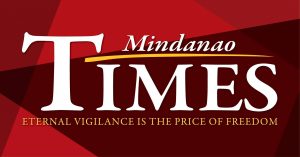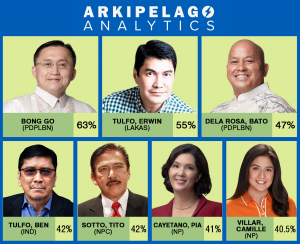 A NEW survey of the University of Mindanao Institute of Popular Opinion showed that half of the respondents claimed their financial situation is still manageable despite the impact of the COVID-19 pandemic.
A NEW survey of the University of Mindanao Institute of Popular Opinion showed that half of the respondents claimed their financial situation is still manageable despite the impact of the COVID-19 pandemic.
The survey, done online between June 15-22, also reported that 4.2% of the 1,200 respondents declared they were not facing economic difficulty, while 36.2% remarked that it is a struggle from time to time.
Additionally, 51.9% (or 5 of 10 Dabawenyos) stated that their households’ financial situation for the next three months is still manageable, 55.8% can still manage meeting bills and credit card commitments, and 51.7% can still manage to settle their bills in the next three months given their current financial situation.
Meanwhile, three of 10 Dabawenyos see their households struggling financially from time to time to meet their obligations, bills, and daily necessities. This is further reinforced by the finding that nearly 5 of 10 (46.5%) Dabawenyos ended up using their personal or household savings to meet both ends, and nearly 3 of 10 admitted having no savings to use.
The survey targeted residents from the three districts of the city to know their financial and economic situation given that the COVID-19 pandemic is still raging.
It was also intended to determine whether Dabawenyos practice financially sound strategies to survive or withstand the crippling effects of the pandemic to their daily household life. Since the survey was done online as physical contact was not allowed during the time of conduct of the survey, IPO relied heavily on online targeted survey of Facebook users who are residents of Davao City, at least 20 years old, and are targeted for contact within the defined geographical radius. A total of 1,200 respondents were contacted in random and systematically targeted.
Millennials (48.2%) and Generation Z (31.5%) were the predominant respondents (almost 8 out of 10 Dabawenyos). A fair number of Generation X participants were also noted (14.7%) while Boomers 1 and 2 constituted 5.5% of the total respondents.
Dabawenyos were asked about their personal and household economic situation. Notably, 6 of 10 Dabawenyos surveyed were employed at the time of survey while one of 10 were self-employed. In addition, 17.6% of the respondents reported unemployment with no income source, while a fair few are either unemployed with income from business and investments or unemployed with monthly pension. Asked if there is a need for additional income at this time, 78.8% (almost 8 of 10) claimed a definite need, followed by 2 of 10 (16.7%) who said otherwise yet stating that having an additional income is not a bad idea.
Finally, respondents were asked about their behavior about their economic and financial situation at this time. Results revealed that 3 of 10 (33.2%) have fair levels of anxiety brought about by their finances, while a lot Dabawenyos have mixed opinion when asked if they are on track to retire with an ideal retirement lifestyle. Likewise, 25.6% reported that they do not have any trouble paying off loans and 27% do not prefer paying minimum amount for their loans. What is more, nearly half of the respondents prefer not to spend beyond their means to keep up with their peers (47.6%) or borrow money from friends and relatives (46.6%). However, 3 of 10 (30.7%) found difficulty to save at least 10% of their income as savings, 3 of 10 (34.6%) do not have enough funds to sustain themselves financially if they go jobless, and nearly the same number (34.2%) have not accumulated funds for their dependents that could be used for 12 months if they pass on. A further crosstabulation of these measures revealed that millennials (born 1981 to 1996 and the most predominant in the survey) are the most anxious in terms of their financial standing, with only a fair level of preparedness to retirement, and lesser propensity to save for future needs.

